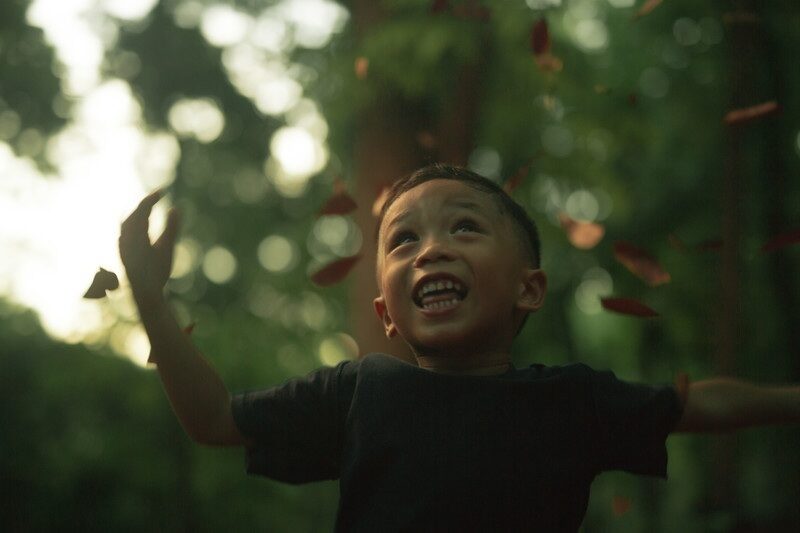Leveraging the proven Philippine model of combating the livestreaming of child sexual abuse and exploitation, International Justice Mission (IJM) has formally launched IJM’s Center to End Online Sexual Exploitation of Children which seeks to strengthen the global response against this crime.
On November 20, IJM unveiled the Center during the third and final day of the Global Resolve Against Online Sexual Exploitation of Children: A Global Virtual Summit. The three-day summit gathered hundreds of stakeholders and experts across disciplines to share promising practices in combating the crime. The summit was hosted by the Philippine Inter-Agency Council Against Trafficking (IACAT) in partnership with the U.S. Department of Justice Office to Monitor and Combat Trafficking in Persons (TIP Office) and IJM.
The newly launched IJM Center partners with governments, industries, nongovernment organizations, and other stakeholders to expose, neutralize, and deter online sexual exploitation of children around the world.
Drawing on lessons from IJM’s program in the Philippines, the Center has a three-pronged global strategy: improve technology and financial sector detection and reporting of livestreamed sexual abuse; strengthen international collaboration in law enforcement and prosecution; and support effective justice system responses in source and demand-side countries, resulting in sustainable protection for children and accountability for perpetrators.
“There is a growing global demand by offenders for new child sexual abuse materials. That demand translates into more children trafficked, sexually abused, and exploited to create livestreams, videos, and photos of their most traumatizing hours of life. With the COVID-19 pandemic further driving this demand up, it has never been more urgent to implement a coordinated global response against this crime,” said John Tanagho, Director of IJM’s Center to End Online Sexual Exploitation of Children.
Earlier this month, the Center released a report that sheds light on the trend of low sentences against demand-side child sex offenders.
With a focus on the U.K., the report and summary highlight the need for sentences that fit the crime to end impunity and protect children. Titled Falling Short: Demand-Side Sentencing for Online Sexual Exploitation of Children – Composite Case Review, Analysis, and Recommendations for the United Kingdom revealed that U.K. offenders who directed and paid for livestreamed abuse of Filipino children spent only two years, four months in prison on average. Backed by the UK Independent Anti-Slavery Commissioner, former UK Home Secretary Sajid Javid, and the WePROTECT Global Alliance, the report argues that unduly lenient sentencing does not reflect the gravity of the crime and does not provide survivors with justice.
Philippine House of Representatives Deputy Speaker Loren Regina Legarda echoed the call for appropriately strong sentencing in demand-side countries. During the summit’s closing ceremony, she said: “Today, I would like to make a clarion call to the global community and a challenge to my fellow legislators from developed countries. Raise the penalties in your countries, in your nations to reflect the severity of the harm inflicted by these predators to these children and provide mechanisms that guarantee that these victims are awarded restitution from their offenders.”
Day 3 of the center's Global Virtual Summit highlighted the global response needed to combat the trafficking of children to create new child sexual exploitation materials, including livestreamed child sexual abuse.
One session tackled the innovative technologies developed by start-up tech companies Yubo, Two Hat Security and SafeToNet to combat livestreamed child sexual abuse and the creation and sharing of new child sexual exploitation materials. Sessions were also held discussing the role of global influencers and highlighting the successful cases of international collaboration in criminal prosecutions of online sexual exploitation of children.
“We must respond to the shifting trends and circumstances of our children and the online world. Online sexual exploitation of children is a global issue that requires a coordinated and multifaceted approach and will only be resolved if the international community works together towards its end,” said Congresswoman Yedda Marie Kittilstvedt-Romualdez, chairperson for the Committee on Welfare of Children of the Philippine House of Representatives.
The summit ended with participants manifesting their resolve to help end the online sexual exploitation of children in a virtual commitment board. In her closing remarks, Senator Risa Hontiveros-Baraquel, chairperson for the Committee on Women, Children, Family Relations and Gender Equality in the Philippine Senate, said: “I'm with you in this battle against online sexual exploitation of children all the way. A society that protects our girls, that protects our children, is a society that includes everyone, protects everyone, and serves everyone.”
Addressing the participants, Philippine Justice Undersecretary Emmeline Aglipay-Villar, Undersecretary in-charge of IACAT, said: “Do not let what you have heard and felt diminish over time. You have a responsibility to your country, to your corporations, and to your loved ones to take the necessary next step of action, effectively initiating change — big or small. And after that to continue taking active steps towards the end of online sexual exploitation of children.”
